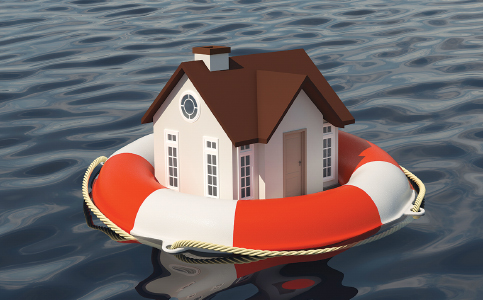Property insurance turmoil meets climate change threats
Advertisement

More than half the homeowners in the South expect their home to be damaged by climate change-related weather in the next 30 years just as property insurance turmoil and insecurity hit hundreds of thousands of homeowners in Florida who are either losing their policies or paying a lot more in premiums with insurers at risk of downgrading.
Florida is one of the most susceptible states for extreme heat and flooding. A Policygenious 2022 Climate Change Survey found that 52% of respondents from the Southern states are concerned with climate change-related extreme weather damage in the next 30 years, and 31% also expect to move due to extreme weather.
“In recent years, Florida insurers have been hit with record natural disasters losses, rising inflation, and unprecedented litigation costs arising from claim disputes, causing many insurers across the state to go bankrupt or cancel policies to remain solvent,” said Pat Howard, property and casualty insurance expert at Policygenius.
When this happens, the homeowners whose policies were canceled are left scrambling to acquire coverage from one of the remaining companies in the state, she added, “and those companies will often adopt stricter underwriting rules, such as stricter requirements around roof condition, and increase premiums to account for the additional risk.”
An average rate increase of about 6.4% was approved on June 30 by the Florida Office of Insurance Regulation for homeowners with multi-peril policies at several property insurers who have downgraded, according to Florida Realtors. Citizens Property Insurance policyholders are to experience an increase in premiums by Sept. 1
Nationally, 90% of homeowners saw their quoted annual premiums increase from May 2021 to May 2022, according to Policygenious data.
Several homeowners’ insurance companies are either going bankrupt or have paused or reduced their business. Among the companies limiting their business are American Traditions Insurance Company, based in Pinellas Park; Universal Property and Casualty, based in Fort Lauderdale; Progressive Home Insurance, which has paused new business in several counties in Florida earlier this year; Monarch Insurance, cancelling more than 68,000 policies in May; Heritage Insurance; Florida Farm Bureau; and Centauri Insurance and Bankers Insurance Group, which pulled out of the Florida market this year.
Several other insurance companies have become insolvent recently. Gulfstream became insolvent Aug. 27, 2021, affecting 32,324 policies; Avatar Insurance became insolvent April 13, affecting 36,569 policies; Lighthouse became insolvent May 28, affecting 27,244 policies; FedNat Insurance was insolvent as of June 29, affecting 65,442 policies; and Southern Fidelity became insolvent as of June 15 with 78,000 policies affected, according to data from Citizens Property Insurance Corp.
According to insurance rating company Demotech’s the Demotech Difference Magazine for Summer 2022, the insolvencies of these property and casualty insurers might leave Florida policyholders no other choice than to seek coverage from Citizens Property Insurance, their last resort.
Policyholders’ premiums are also rising at alarming rates, making it unaffordable for many in Florida to own and maintain a home, as mortgage requirements, in most cases, involve having homeowners insurance.
About 17 insurance companies were facing potential ratings downgrade from Demotech, negatively impacting coverage for homeowners who depend on a good rating for their mortgage requirements. Demotech has recently delayed downgrades “until further notice,” according to its president, Joe Petrelli.
Florida Gov. Ron DeSantis announced late last month a temporary fix, which would allow homeowners to keep their policies regardless of the rating of the company. State officials have argued that property insurers should not lose their A-rating since they are financially stable, although a few reports may indicate otherwise.
“Given Florida’s high risk of hurricanes, insurers must place a lot of importance on the condition of your home’s roof, or any other parts of your house that are susceptible to high winds,” Ms. Howard said.
One way to make a home more insurable and to possibly lower a premium, she explained, would be to invest in wind damage resistance. Florida insurance companies are required by the state to provide discounts for homes with wind mitigation features, such as hurricane rated roofing materials, windows, and doors.
“Homeowners can also get discounts for bundling their home and auto insurance – purchasing both policies through one company – opting for paperless billing, installing security systems, and increasing their out-of-pocket deductible,” she said. “While raising your deductible is an effective way to lower your home insurance premium, be careful not to increase it to an amount you won’t be able to afford in the event of a claim.”


